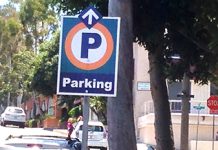A federal appeals court declined to rule on the merit of a claim over city of Laguna Beach policies that impact homeless people and dismissed the case initially filed in 2012 on technical grounds.
In an unpublished decision issued Thursday, April 26, a panel of three judges on the U.S. Court of Appeals in Pasadena ruled that Laguna Beach resident Leonard J. Porto III lacked standing to challenge the legality of the city policies and thus seek damages in part because he is no longer homeless.
Porto’s pro bono lawyer Annie Avery, a student at the University of Nevada law school, must decide by May 10 whether to petition the panel for a rehearing, said her law school supervisor, Ann Traum.
Porto, a computer consultant who acted as his own lawyer early in the case, is not about to accept defeat.
“The honorable jurists did not fully connect to the pleadings,” he said. “One judge did connect to the humiliation and misery of being awakened by a policeman in my car. My voice was heard on that!”
Despite the legal setback, Porto said, “I see it as a very big win to have progressed this far. My legal team could not have done any better. Their involvement was a big win.”
Porto received the benefit of a team of lawyers, albeit legal novices, as a result of a Ninth Circuit program to assign pro bono cases to legal clinics, Traum said.
“It’s an interesting thing for students to be interacting with clients who are their own lawyers,” she said, describing Porto as “very impressive in what he packed into his briefing.”
In oral arguments earlier in April, Avery argued before judges Mary M. Schroeder, Milan D. Smith Jr. and Gershwin A. Drain. She said the district court erred in dismissing Porto’s claims that challenged the validity of the city’s statute that bans sleeping in public places and alleged as discriminatory a local’s preference policyfor admission to a city run overnight shelter.
“Leonard’s lack of standing doesn’t make the policy lawful,” said Traum afterwards.
Nevertheless, City Attorney Phil Kohn said the city had no plans to revise its policies or statutes. The city’s screening policy to gain admittance to the 45-bed Alternative Sleeping Location in Laguna Canyon “still allows a meaningful opportunity to use it,” he said.
He pointed out that up to 20 of the beds nightly are used by people that meet the “locals” criteria, which in part involves demonstrating established ties to the community. The criteria were established because demand often exceeds the shelter’s capacity.
For the jurists to address Porto’s underlying claim that city policies are unlawful, Avery had first to establish that Porto had been harmed by the city’s actions. She did not succeed.
Testimony indicated Porto received several warnings from police about sleeping in his car, but that he was not actually cited or prosecuted. Judge Smith agreed that having police shine a flashlight in your eyes is “quite upsetting.”
The city’s attorney, Ajit Thind, agreed any interaction with police is stressful, but such a situation doesn’t rise to a “concrete injury.”
Avery said Porto had been turned away from the shelter for months in 2010 and told he wasn’t considered a local before he was asked to fill out forms to establish eligibility.
Thind pointed out that Porto refused to comply with the screening process to enter a lottery for spaces that locals didn’t claim and to sign a liability waiver.
That proved a sticking point for Judge Smith. “Did he decline to participate with staff? He had an opportunity to show he was a local.”
The unsigned ruling says, “Porto failed to show that the Locals Criteria forced him to compete for a space at the shelter on an unequal basis.”




